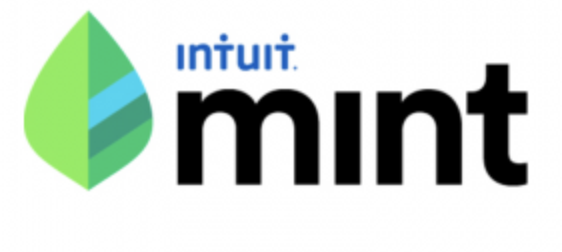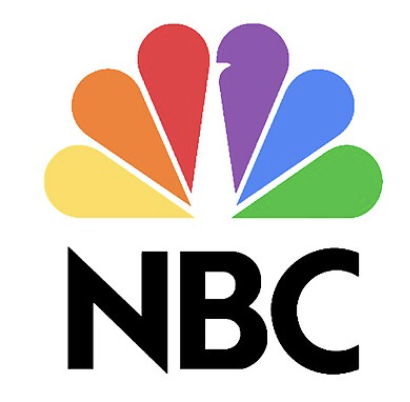
Jacquette M. TimmonsFinancial Behaviorist, Speaker, Author, Podcaster
Helping clients build better money behaviors in New York and across the U.S., Canada, and Europe
As Featured InTRANSFORM YOUR RELATIONSHIP WITH MONEYYour Money Story
Shapes Your Financial Future
Ever found yourself awake at night, asking the same questions we all do?
Am I saving enough? Investing enough? Earning enough?
These questions aren't really about numbers – they're about something deeper. While traditional financial advice focuses on "tried-and-true" principles like budgeting and investing, 39 years in finance has taught me something crucial:
Financial succcess isn't just about what you do with money
but why you do it!
No one makes financial choices in a vacuum. Your experiences, beliefs, and emotions shape your relationship with money - and every choice you make because of it.
The key to real financial change?
Understanding that relationship and taking control of it.
My approach to financial success is human-centered!
As a financial behaviorist, I help my clients navigate complex financial decisions by addressing both the numbers and the behaviors behind them. Whether I’m working with entrepreneurs, business professionals, or the employees of large financial institutions, corporations, or law firms, I bring this philosophy to every conversation.
Together, we'll cut through the confusion, break past obstacles, and align your financial choices with what truly matters to you - so that you can build a life and a business that’s successful, profitable, and not broke.

“Jacquette's the best — I'd worked with a number of financial services professionals before, but it always felt like there was a piece missing. One would be able to give me really good advice about what to do with my taxes, but wouldn't understand the behaviors that got me into that tax situation to begin with. Another would have lots of thoughts on my money mindset, but have no idea where to steer me when it came to my offers portfolio. Jacquette encompasses all of that and then some. She's able to work with the whole of your money stuff, from technical skills to business development to the deeper habits and behaviors. She's empathetic, extremely smart, nonjudgmental, and above-and-beyond supportive. Hire her. Now.”
Rachel Allen
founder of Bolt From the Blue Copywriting
Unlock Your Path to Financial Clarity & Wealth
-

1:1 Coaching Programs
I work with entrepreneurs, professionals, small business owners, individuals, and couples to explore their relationships with money (beyond the calculator) and build confidence in their steps toward their financial goals.
Successful, Profitable, and Not Broke - for entrepreneurs
Beyond the Numbers - for individuals & couples
Half-Day VIP Coaching Session
-

Masterclass
Master your pricing strategy with Pricing Made Human®, a live 2-hour masterclass that goes beyond the numbers. Gain the confidence, strategy, and framework to price your services for profit, growth, and long-term success.
The next Masterclass is Thursday, June 5, 2025 at 4PM
-

Digital Products
These asynchronous digital products are designed to help you explore your relationship with money – at your own pace.
The More Than Money Workbook - and audio companion
» Coming Soon «
Money Focus and Flow- a financial accountability program with an audio companion
-

Keynote Speaking
My dynamic speaking engagements integrate the psychology and emotions of money in an engaging and thought-provoking way. I have three signature talks that focus on behaviors, aha moments, and results.
Financial Success Doesn't Start in Your Wallet- for all audiences
The Inside Story of Wealth: Tapping Into Your Client's Unspoken Relationship With Money - for financial advisors
Pricing Made Human® - How to Price Your Genius - for events & conferences for entrepreneurs

NOT YOUR AVERAGE FINANCIAL OR BUSINESS COACH
Why Work With a Financial Behaviorist?
Beyond the Numbers
Managing money isn’t just about the numbers – it’s about the choices you make around them. Focusing on behavioral insights, I help businesses and individuals make decisions that align with their goals, values, and long-term success.
Private Banking Experience
Drawing from my years managing wealth for high-net-worth individuals, I bring that same sophisticated, high-touch approach to our work together. But unlike traditional private banking, I focus on wealth creation and the behavioral patterns that impact your financial success.
Non-Judgmental Guidance
You won’t find cookie-cutter solutions or judgments here. Instead, you can expect direct, thoughtful guidance, a deep exploration of what financial success truly means to you, and a game plan for lasting transformation in your relationship with wealth.
Financial Wellness Keynotes
Through dynamic keynotes, fireside chats, and panel discussions, I explore the intersection of money and well-being. These talks offer actionable insights on financial wellness – empowering individuals and organizations to make informed money decisions that lead to both personal and professional fulfillment.
A Holistic Perspective
True financial success is about creating a mindset, habits, and strategies that work in harmony. A holistic approach ensures that financial decisions are aligned with both personal and professional aspirations, fostering lasting success.
Real Stories, Real Transformations
Meet Jacquette M. Timmons, Financial Behaviorist
On October 19, 1987 – "Black Monday" – I witnessed something that would shape my career and inform my approach to money. While some professional investors panicked as the market crashed (upset by the money lost for themselves and/or their clients), others remained remarkably calm.
This stark contrast revealed a profound truth: money is never just about the numbers.
I started my firm in 1995 to give people access to high-level financial expertise without requiring millions in assets. But my work quickly evolved. Clients weren’t just asking for investment management—they wanted guidance on how to navigate their wealth in a way that aligned with their values and ambitions. Highly educated professionals, successful entrepreneurs, and first-generation wealth builders all faced the same core challenges: not just how to make money, but how to manage the stress, guilt, or uncertainty that often comes with it.
My Approach
The truth is, the human side of money is deep and personal. It doesn’t matter how many zeros and commas are in your bank account – the same questions, challenges, desires, and influences impact your relationship with money.
That’s where my work lives—at the intersection of human behavior, money, business, and life.
I help my clients see clearly where their financial choices, blind spots, and aspirations meet so they can be successful, profitable, and not broke—not just financially but creatively and energetically, too.
Working together to write your money story.
As your personal financial behaviorist, I will help you:
02
Shift your focus beyond the numbers
03
Transform your financial behaviors
04
Create a personalized financial game plan
Understand the connection between money and emotions
01
05
Navigate financial challenges with confidence
Download the Financial Flywheel™
Latest Insights on Money & Behavior
Ready to Transform Your Relationship with Money?
Money is more than just numbers – it’s human. I help individuals, entrepreneurs, and professionals uncover the root of their financial habits, shift limiting beliefs, and create personalized strategies for lasting change.
Through private coaching and dynamic speaking engagements, I guide clients in deepening financial clarity and making confident, empowered decisions. Together, we’ll move beyond the numbers to build lasting prosperity and wealth—your way.
Let’s Start Today!



















